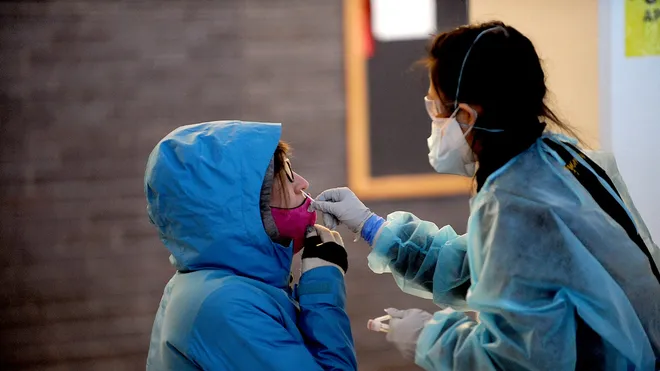New COVID-19 Variant NB.1.8.1 Spreads Globally: What You Need to Know
A new subvariant of the COVID-19 virus, NB.1.8.1, is rapidly spreading across Asia and the United States, prompting renewed concerns from health experts and global authorities.

Where Did NB.1.8.1 Come From?
The variant, officially named NB.1.8.1, is a descendant of the Omicron JN.1 lineage. It was first identified in China, where it quickly became the dominant strain. It has since spread to Hong Kong, Singapore, and several U.S. states including California, Washington, Virginia, New York, Ohio, Rhode Island, and Hawaii.
The World Health Organization (WHO) has listed NB.1.8.1 as a “variant under monitoring”, which means it is being closely tracked for changes in behavior, transmissibility, and impact.
Symptoms of NB.1.8.1
NB.1.8.1 presents symptoms similar to earlier Omicron strains, making it hard to distinguish without testing. These include:
-
Sore throat
-
Mild cough
-
Fever
-
Muscle aches
-
Headache
-
Nasal congestion
-
Fatigue
-
Nausea or vomiting
-
Loss of appetite
So far, there is no evidence that this variant causes more severe illness than previous strains, but the rapid increase in hospitalizations in some areas (especially among elderly populations) has raised concerns.
💉 Vaccine Protection and New Guidelines
Current COVID-19 vaccines are expected to offer protection against severe disease caused by NB.1.8.1. However, some countries, including the United States, are adjusting their vaccine guidelines:
-
Vaccinations will be prioritized for seniors and those with chronic conditions.
-
Healthy children and pregnant women will no longer be routinely recommended for vaccination under the new U.S. guidelines — a decision that is being debated among public health experts.
🧳 Global Response and Monitoring
The U.S. has begun enhanced airport screenings to track the variant’s entry. Health officials worldwide are ramping up genomic surveillance and testing efforts.
China and other parts of Asia are experiencing increased hospital admissions, especially among unvaccinated and elderly populations, pushing hospitals to prepare for potential surges.
🛡️ What Can You Do to Stay Safe?
Health experts recommend the following precautions to reduce the risk of infection:
-
Wear masks in crowded indoor settings.
-
Practice regular hand hygiene.
-
Stay home if you’re feeling unwell.
-
Get vaccinated or boosted if you’re in a high-risk category.
-
Keep informed through official health updates.
Final Thoughts
As the world adapts to living with COVID-19, the emergence of NB.1.8.1 serves as a reminder that vigilance remains critical. While vaccines and treatments continue to offer strong protection, monitoring and public awareness are essential in curbing new waves of infection.
Stay tuned to our site for updates on the spread, impact, and treatment of the NB.1.8.1 variant.
By Dr. Rabia Hussain




